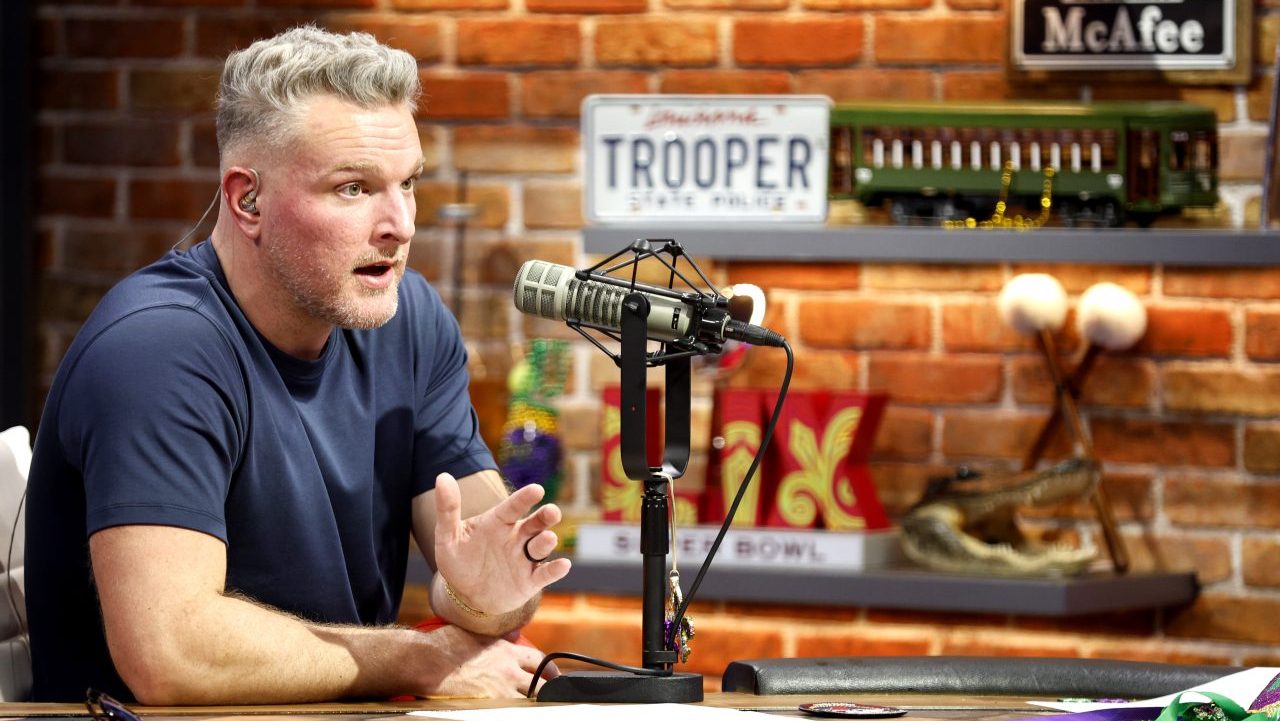
A viral internet rumor referenced by ESPN’s Pat McAfee is now the subject of potential legal action.
The Athletic on Tuesday published an in-depth story about the aftermath of McAfee referencing, without naming anyone, an internet rumor in late February regarding the father of an Ole Miss frat student supposedly having sex with his son’s girlfriend, a freshman at Ole Miss and a member of a sorority. The individuals targeted by the rumor insist it is false.
Mary Kate Cornett, 18, told The Athletic she has retained legal counsel and intends to take action against McAfee, ESPN and others. ESPN declined to comment on the matter.
The possibility of a lawsuit over the boosting of a false rumor raises intriguing questions about the scope of defamation law and First Amendment free speech protections for media personalities.
On Feb. 25, the rumor surfaced on YikYak, an anonymous message board app popular on college campuses that lets users share posts visible to anyone located within a set distance. The chatter then swiftly gained traction on other forms of social media, including X. McAfee wasn’t alone in boosting the rumor to generate clicks and garner attention—two Barstool personalities and ESPN radio hosts did so as well.
As The Athletic details, Cornett has been harassed and terrorized, and her privacy repeatedly invaded, over the last five weeks.
“You’re ruining my life by talking about it on your show for nothing but attention,” Cornett is quoted as saying. “But here I am staying up until 5 in the morning, every night, throwing up, not eating because I’m so anxious about what’s going to happen for the rest of my life.”
Cornett could argue that McAfee and others are liable for defamation, which consists of an untrue statement of fact concerning another person that damages the person’s reputation. Other potential claims could include intentional infliction of emotional distress, invasion of privacy and negligence.
The gist of the case would be that McAfee crossed a line when, though prefacing with the word “allegedly,” he said that “what is being reported by . . . everybody on the internet” is a dad having sex with his son’s girlfriend. The statement is couched as factual, rather than opinion, in that it references a sexual act involving two people. McAfee arguably tries to corroborate the rumor by claiming “everybody on the internet” is reporting it.
Cornett could assert that a reputable media company like ESPN should not allow its talent to repeat unsubstantiated sex rumors that originate on an anonymous message-based app. Even if McAfee is unscripted and free-spirited, Cornett might assert he (and his co-hosts and producers) should have been trained and supervised to refrain from discussing dubious sex rumors, especially those involving ordinary people—not celebrities.
But McAfee would be armed with legal defenses even if he acted inappropriately or unprofessionally.
For one, McAfee used the word “allegedly” in referencing the rumor. He thus conveyed to listeners that he was not verifying the information, only restating what others had claimed. Likewise, McAfee could insist that his reference to “everybody on the internet” was not a statement of corroboration since people generally don’t regard “the internet” as a reliable source of information.
McAfee could also assert that he is not a news reporter or a fact-checking editor but rather an entertainer and provocateur. The audience of McAfee show’s likely doesn’t take him as seriously as an ESPN analyst or reporter. McAfee’s program is popular in part because it features exaggeration and over-the-top opinions.
A version of that defense aided Shannon Sharpe, whom Brett Favre sued for defamation over Sharpe saying, among other things, that “Brett Favre is taking from the underserved” and “[Favre] stole money from people that really needed that money.” Key to Sharpe’s success in court was that he was offering his own spin on news items that others reported. McAfee could maintain he was doing the same in what he would portray as his colorful style.
The fact that McAfee didn’t name names could also become important. He would maintain he was offering a summary of allegations involving an Ole Miss dad and his son and son’s girlfriend, rather than details about specific people. McAfee would assert his statements were not, as defamation demands, concerning another person. A counterargument is that a quick internet search would have provided more biographical information about those involved.
Further, McAfee could maintain that he is not legally responsible for what his audience does with viewpoints shaped by the show. McAfee could assert that if someone harassed Cornett after watching his show, then the harasser—not McAfee—is at fault. McAfee might maintain that if he was legally responsible for audience reactions, then many shows of his kind would end. Hosts would run the legal risk of being held causally connected to viewers’ actions, which might run counter to First Amendment free speech protections.
It’s possible the parties involved negotiate financial settlements, with public apologies, to avoid the uncertainty of litigation. Even if Cornett is financially compensated and those who referenced her publicly apologize, she won’t be able to regain the life and peace of mind she enjoyed before she became the target of a salacious internet rumor.

